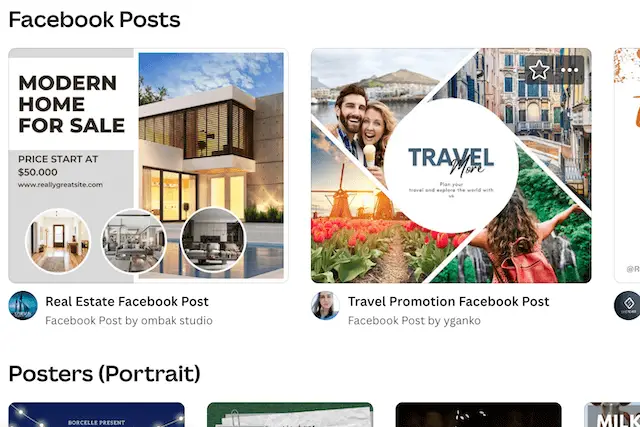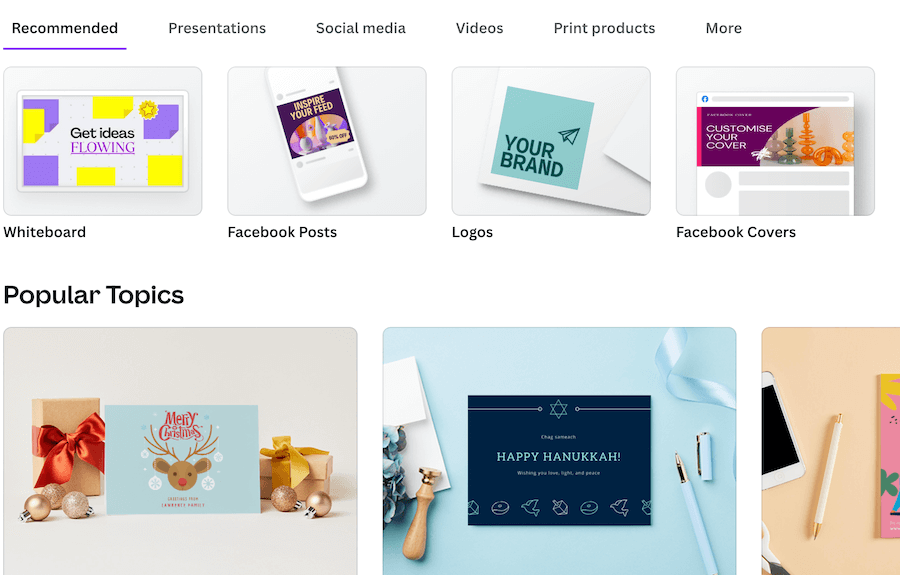Do you create graphics for your blog or company using a graphic design application like Canva?
Me too! I cherish Canva. To adhere to copyright regulations, however, there are a few things you must understand.
Reselling a graphic made using a Canva template, is it prohibited? Yes, it is unlawful, to put it simply.
There are a few exceptions to this, though.
Table of Contents
Is It OK to Use Canva Templates?
Canva templates cannot often be used for business reasons.
According to Canva’s Terms of Service, you may only use its products “for personal, non-commercial reasons.”
A few situations constitute an exception to this rule. You may use Canva Pro features for business reasons if you buy a subscription.
Additionally, you are permitted to use an asset that you buy from Canva’s marketplace in accordance with the license that comes with it.
But even if you have a Canva Pro subscription or have bought an item from their marketplace, you are still not allowed to utilize Canva templates for profit.
This is due to the templates’ status as “pre-designed material” and their lack of commercial usage authorization.
You must either create your own designs or get commercial rights for templates from other sources if you wish to utilize Canva templates for business reasons.

You Have to Be Knowledgeable of Canva Licensing
Canva’s terms of use contain a number of license agreements.
I urge you to read these carefully and become familiar with the conditions you have accepted by using Canva’s platform if you want to use it for your company.
In general, any original files you submit to Canva are regarded as “User Content,” and you maintain ownership over those assets.
However, adding any other design components might make things more difficult.
For instance, any uploaded custom artwork or logo assets remain your property.
However, when you add templates or other design components from the Canva library to those visuals, you’re actually adding things that you don’t own.
The extra design components belong to Canva, not you.
A design may have more components that belong to Canva than to you if you add too many of their elements to go with your own uploaded file. So Canva is the rightful owner of the finished image.
For one-time use visuals (such as postings on social media), all of this is often OK.
But if you’re developing a logo or other crucial design component to represent your business, it’s dangerous ground.
If you utilize Canva’s design components, Canva (or a connected third party) may have some degree of legal ownership over “your” creation.
You must buy an extra license for the use of “your” own design if you use the design for commercial endeavors or to resell to a client.
These are the licenses that Canva offers.
- Royalty Free License.
- One Time Use License.
- Items for Resale License.
- Unlimited Reproductions Extended License.
- Multi-Seat Extended License.
Overall, I would advise using your own design components (fonts, colors, logos, and images) more frequently than Canva-owned ones.
This is one of the reasons I choose Canva Pro: you can upload your own fonts for more personalization.
If you’re producing anything for resale or wide distribution, the balance should favor your own brand.

It Is Difficult to Protect Your Brand’s Image
When it comes to utilizing templates, I can totally see the temptation!
A Canva template may be easily updated with your graphics and photos to create a nice-looking semi-custom design.
But if you’re not careful, employing templates might give your brand a uniform impression.
Well-designed Canva templates frequently become so well-known that their distinctiveness is lost.
While you can utilize templates, it’s worth the extra time to properly customize them to reflect your brand and give them a more authentic feel.
Spend some time ensuring that your brand’s colors, typefaces, and pictures are used consistently.
As far as feasible, alter the design to reflect your own company’s identity rather than the template designer’s.
The Best Places to Sell Your Canva Templates and Designs
Canva is a terrific tool for designers to use to make designs and templates that appear polished.
But what happens once you’re done with them?
Here are some marketplaces where you may sell Canva designs and templates.
Design Bundles
You may offer design materials like fonts, illustrations, and Canva template designs on Design Bundles.
You may register for a free account and upload your designs.
Then, you may decide to establish your own rates or decide to incorporate your designs into package sales.
Etsy
A well-known online store for selling handmade and antique goods is Etsy.
Additionally, you may market digital goods like Canva templates.
You must register for an account and set up a shop in order to sell on Etsy.
After that, you may upload your designs and decide how much to charge.
Creative Fabrica
Another website where design resources may be bought and sold is Creative Fabrica.
You must register for a Creative Fabrica account and submit your designs for approval before you may sell.
You can choose your own rates once your designs have been accepted.
Creative Market
Another website where design resources may be purchased is Creative Market.
You must register for an account and submit your designs for approval in order to sell on Creative Market.
You can choose your own rates once your designs have been accepted.
Design Cuts
You may also sell design materials using Design Cuts.
You may upload your fonts, images, and template designs for free after creating an account.
Then, you may decide to establish your own rates or decide to incorporate your designs into package sales.

FAQs
Can You Use Canva for a Social Media Post?
You may design social media posts with Canva for either personal or promotional usage.
You may submit your own image to Canva or select from a wide selection of free images and stock photos.
Canva also provides a variety of templates and tools to aid in the creation of designs that appear professional.
Canva Design Be Used for Client Work?
In short, you may utilize Canva for client projects.
Users of Canva have the option of upgrading to a premium account for additional features and possibilities.
You may, for instance, remove the Canva watermark from your designs if you have a premium account.
If you want more creative capabilities and possibilities, such as branded templates, team collaboration, and more, you may also utilize Canva Pro or Canva for Enterprise.
What Does Canva’s Stock Media Mean?
You may use stock media, which is a collection of royalty-free films, stock photos, and audio files, in your Canva creations.
All the assets in the collection are licensed for commercial use, and you may search for specific Canva pictures or browse by topic.
As a result, you may use them in your designs without fear of violating someone else’s copyright.
Canva Pro Images Be Used for Commercial Purposes?
Images from Canva may be used for both personal and professional purposes, including marketing and advertising.
The monthly subscription for Canva Pro includes an unlimited number of image licenses.
This implies that you just need to make a single payment for them before using them indefinitely.
Please note, however, that you are not permitted to share the files on other stock media sites.
Additionally, you are not allowed to use any of Canva’s images, audio, or video in a way that suggests support for the individuals or companies represented.
Are Canva’s Images Protected by Copyright?
Yes, the images on Canva are licensed to you and have copyright protection.
This comprises images, models, clips, and other components.
These pictures can be used for advertising, marketing, and other business-related things.
Unaltered media, however, cannot be sold or distributed under your own name.
Final Thoughts
If you want to utilize a Canva design for products, either get a license and make all the changes you want or design something entirely new using solely the free resources.
It is preferable to avoid sharing the actual digital content unless it is of your own creation or was provided for free by Canvas.
No design, whether changed or unaltered, bought or not bought, may be used as your trademark or logo.
Additionally, those must be entirely unique.
If you are worried about using or reselling an image created on the Canva platform, you should always study the legal guidelines for one-time use licenses, free-use licenses, and conditions of use.
The easiest way to be sure you are not utilizing a Canva design inappropriately is to contact Canva support.
Further Reading:


